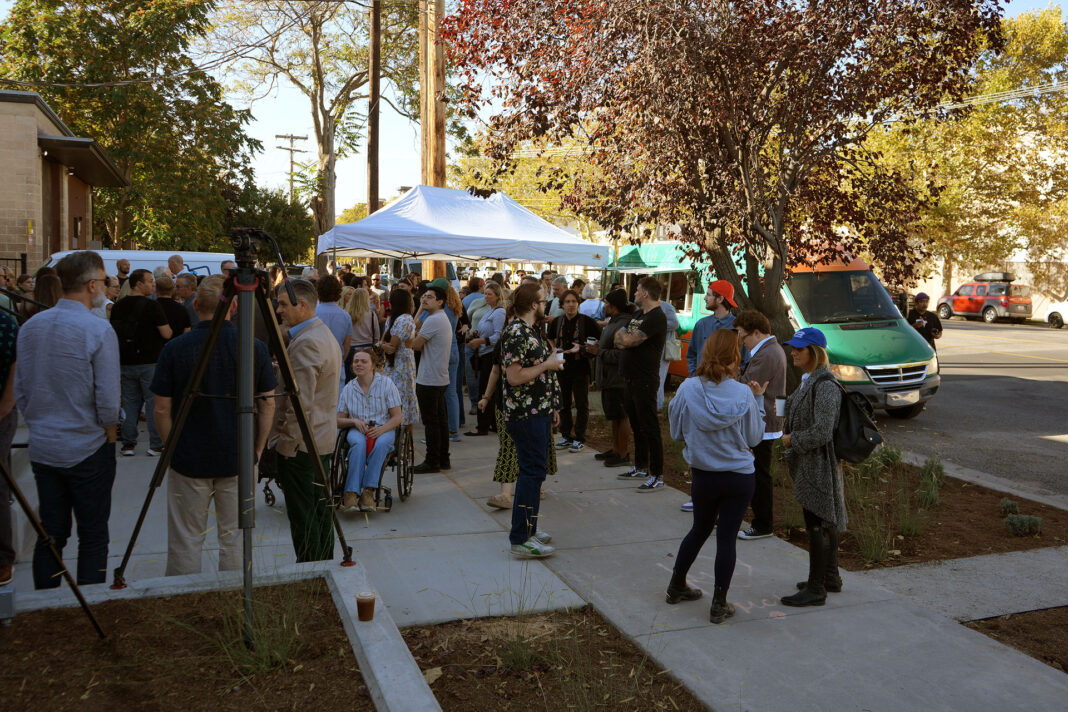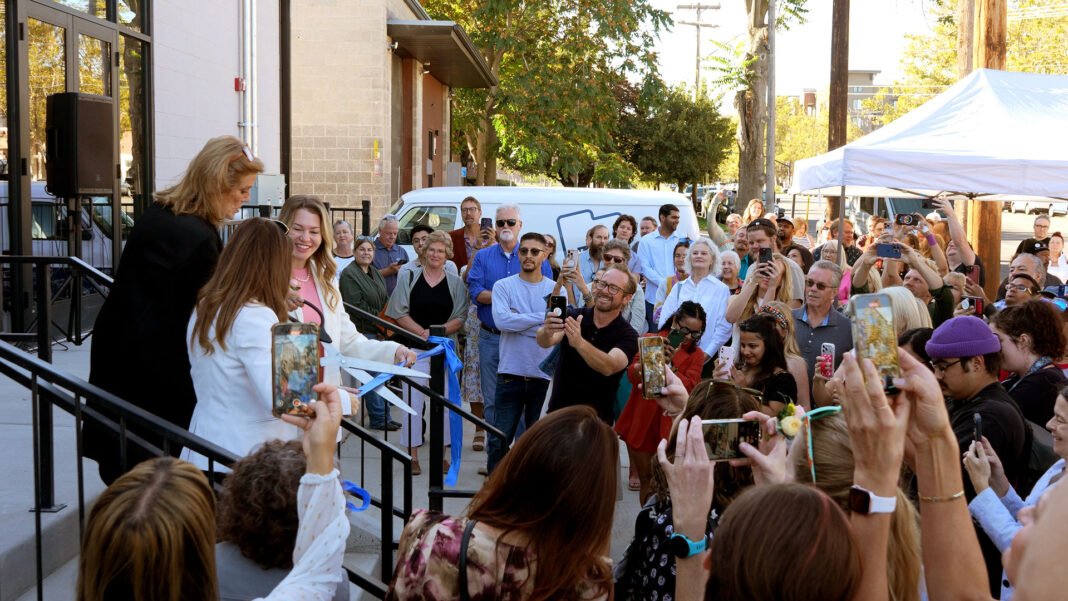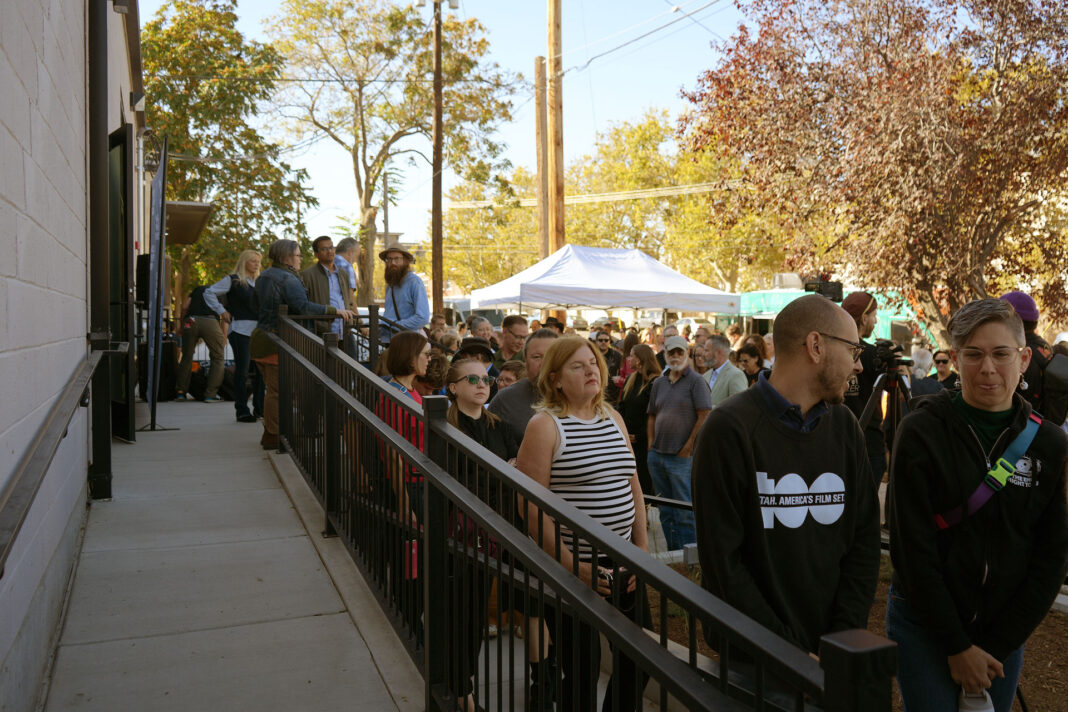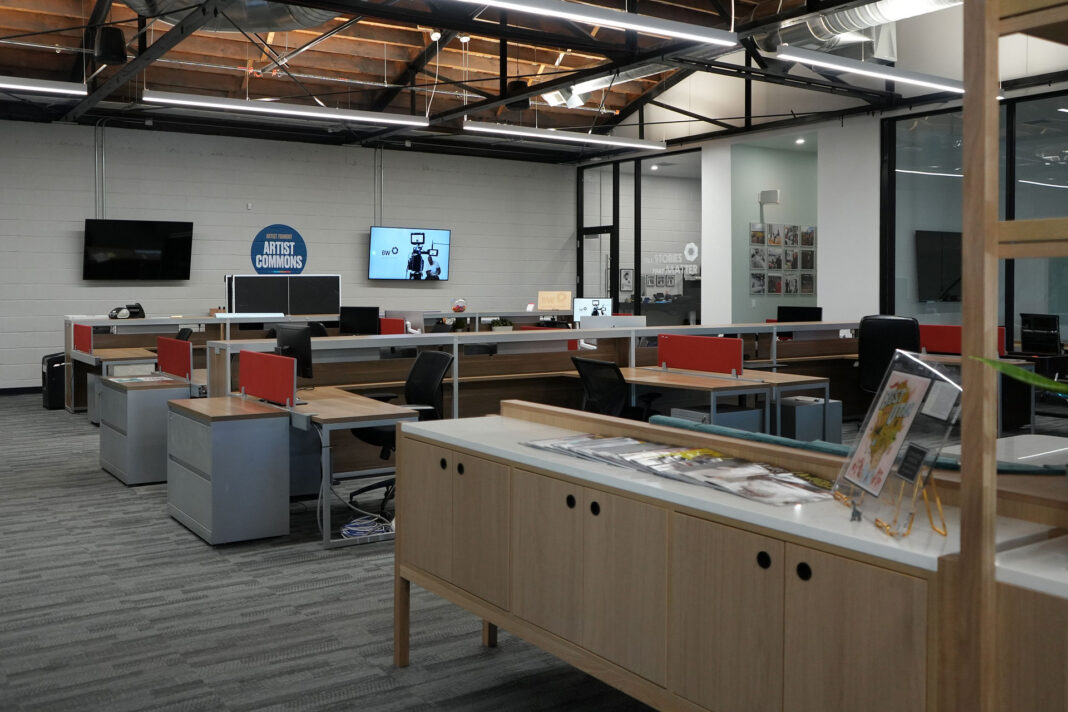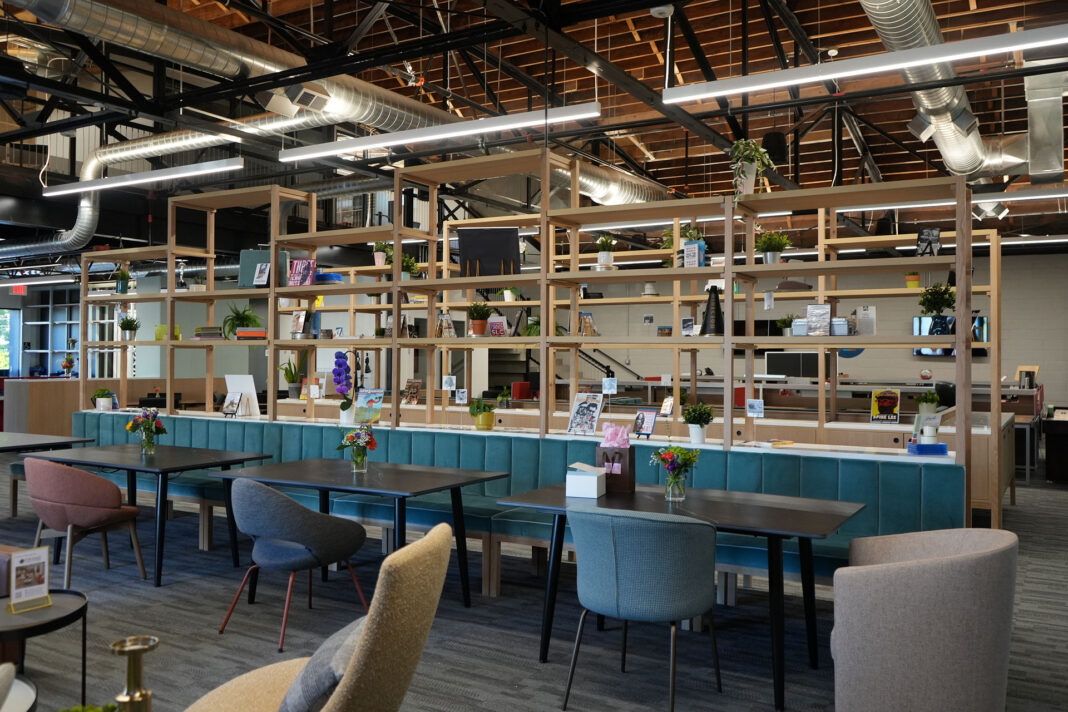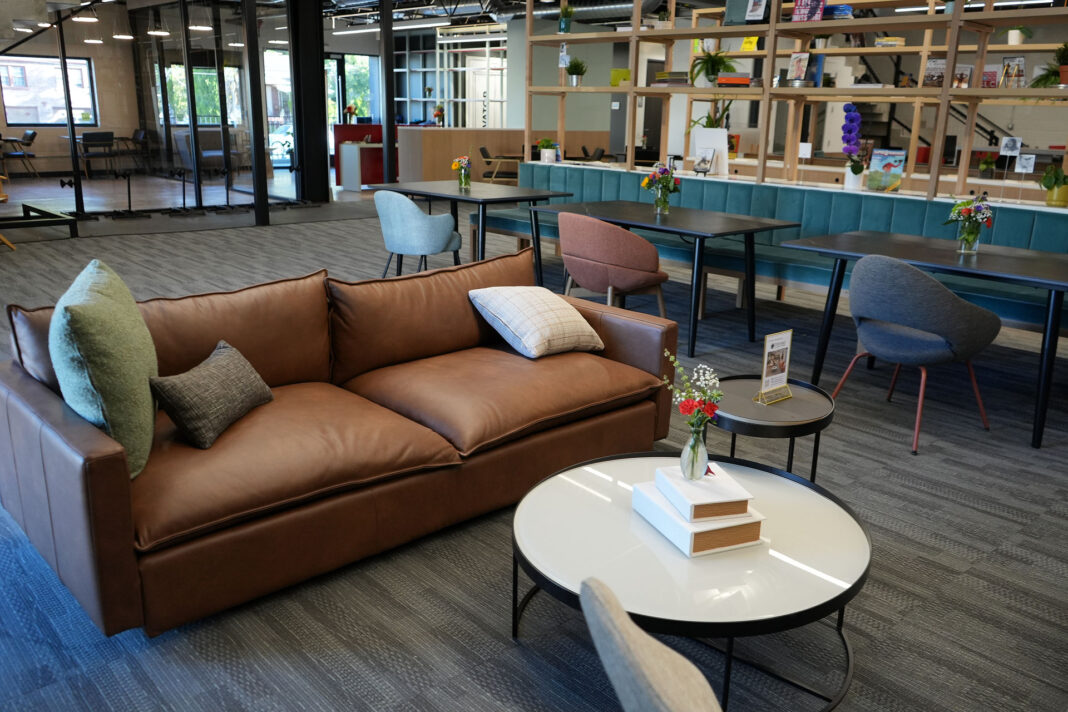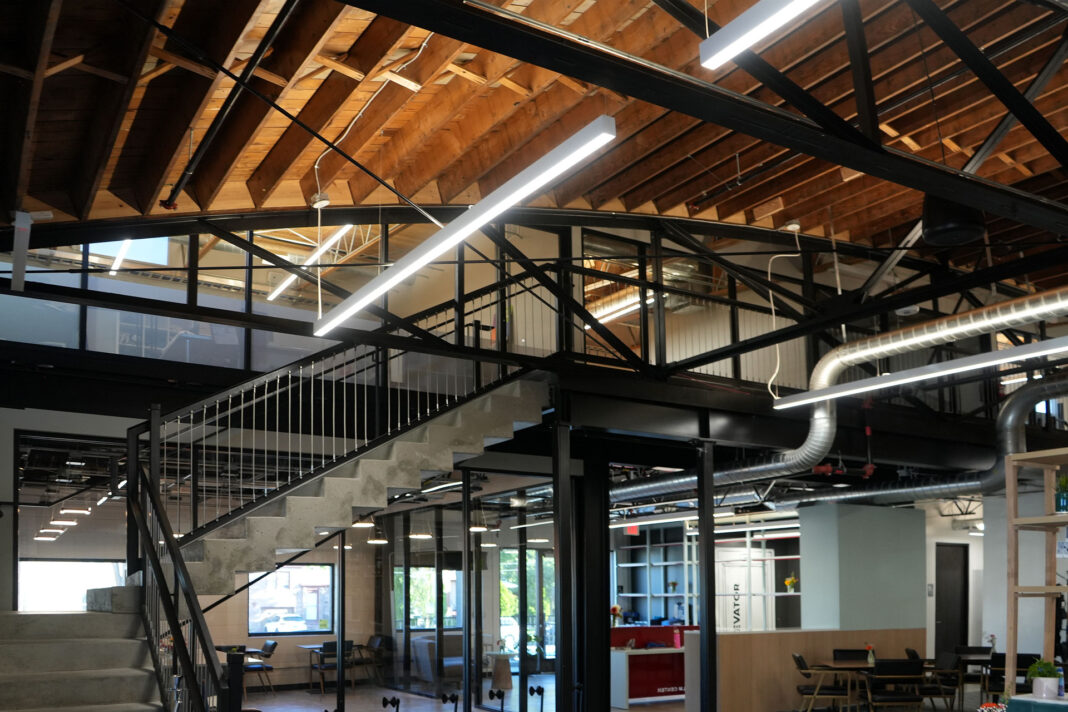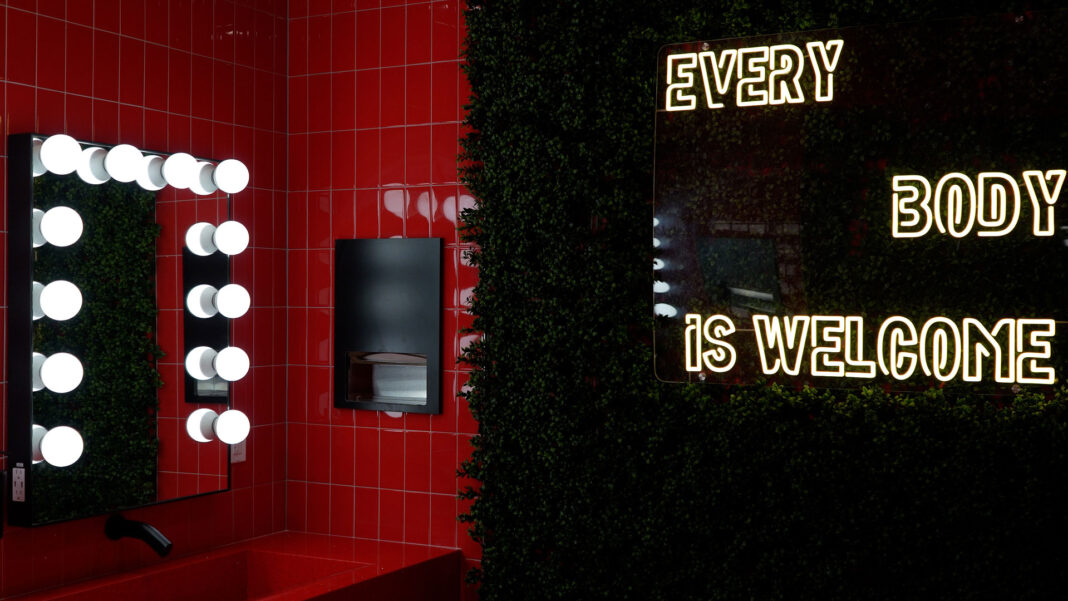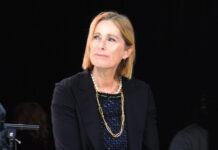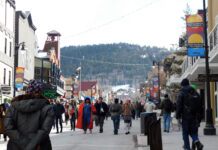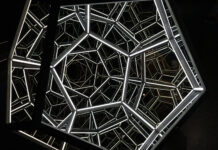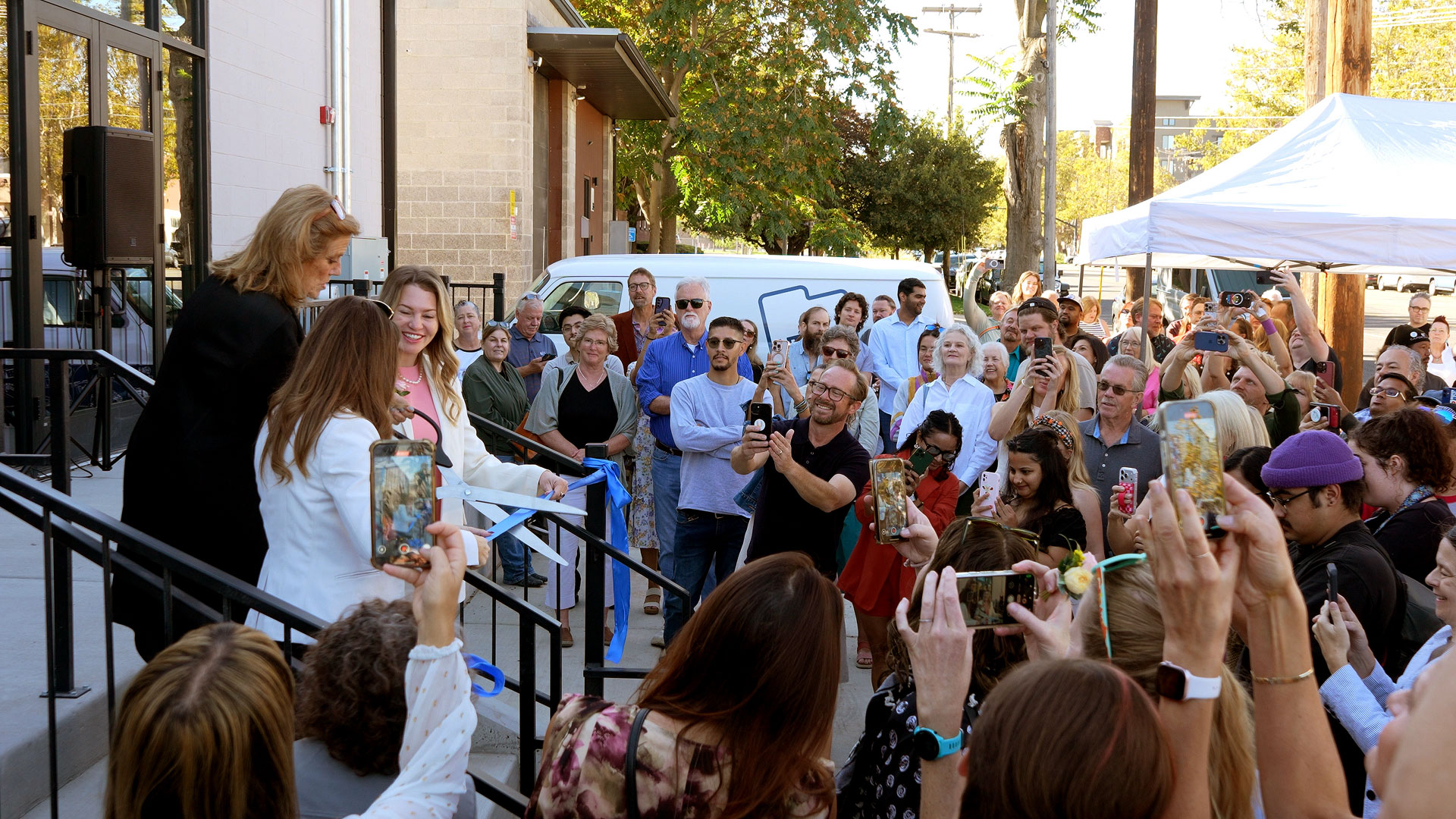
The Utah Film Center held its grand opening for the Geralyn White Dreyfous building in Salt Lake City on Sept. 27.
The ceremony followed several months of remodeling to tailor the space specifically for filmmakers, educators, students and movie-lover audiences. Before the ribbon cutting, center director Mariah Mellus said her team endured months of construction noises to reach the end product.
Founder and Board Chair Geralyn White Dreyfous referred to the Utah Film Center as a “pop-up organization in 2002 that tumble-weeded into town with stories that we thought mattered.” Dreyfous also said the community needed to stick together and support storytellers because “they are our way to be on record for who we are.”
Positive feedback on the interior of the building
Upon entering the building, located located at 375 W. 400 N., attendees could admire the high, open ceiling, as well as sofas, office chairs, tables and computer stations surrounded by rows of shelves with memorabilia of films made in Utah. Memorabilia included small posters, miniature replicas of old movie cameras, and VHS and DVD covers.
Being an interior design major at Weber State University, Isabel Hernandez Martinez was impressed with the interior layout of the center.
“They did an exposed ceiling called industrial style,” Hernandez Martinez said.
The Utah Film Center’s new Black Box Theatre has soft, comfortable chairs arranged in tiered rows, ensuring that every seat offers an unobstructed view of the screen.
The breakroom had basic appliances and a few small dining tables and chairs. The bathroom had a sign reading “Everybody is welcome” and there was floor-to-ceiling, fully enclosed toilet compartments.
“The bathrooms are very playful … super colorful and bright,” Hernandez Martinez said. “The sign is very reassuring because it’s like, universal — there’s like, no gender anything.”
A resource for current film students and graduates
Stan Clawson, an adjunct film professor at Salt Lake Community College, views the Utah Film Center as a resource after graduation to use, when the challenge of having the tools to make films are most needed.
“I really see this space as a place for students to utilize not only while they’re going to school but also when they leave and want to continue making films, so that they have the resources to tell their stories, which I think is a roadblock for a lot of filmmakers,” Clawson said.
Clawson said he believes the center is an organization that has truly advocated for independent films that highlight expressions from marginalized communities and address topics often overlooked.
“I think the Utah Film Center is an organization that really has championed film and independent film, and film that promotes independent voices from marginalized communities or topics that we don’t really talk about in the mainstream media. I think this is going to be just an incredible space for creative people to make work that has a profound social impact,” said Clawson.
One such person is Ti Tavai, who has worked on different films in Utah as well as Los Angeles. He is excited to work with the center to bring his culture to audiences.
“I’ve talk Mariah and to the team about trying to push some Pacific Islander films, especially out here in Utah because it’s so much of our community out here,” Tavai said. “Our stories are just different compared to somebody who’s a refugee — that’s [a] different [experience] — we have a different story to tell on our end.”
Ben Coles, a 2024 film graduate from the University of Utah, has utilized his degree by providing workshops about filmmaking to after-school children. He enjoyed learning about the history of the Utah Film Center and its road to success.
“It was cool to hear the history and just how long the journey has been to achieve their own space,” Coles said. “It looks very beautiful in here, and I saw the Black Box where they have lots of films, and I think it’s going to make a big impact on the local community.”
Attendees were able to socialize and explore the new center until 2 p.m.
Dreyfous ended her commentary by saying, “There is going to be a lot of magic in this building. Thanks to Mariah and her team and all of you that have supported us over the years. I feel very grateful today. Thank you.”
The Utah Film Center is expanding its resources to include independent cinema creators. The center will offer co-working spaces for filmmakers, the Black Box, and flexible rooms for workshops, classes, and community gatherings. In addition, the center will act as a hub to allow creative networks to grow, collaborate and share their stories with Utah and beyond.
See the Utah Film Center’s website for upcoming events.


